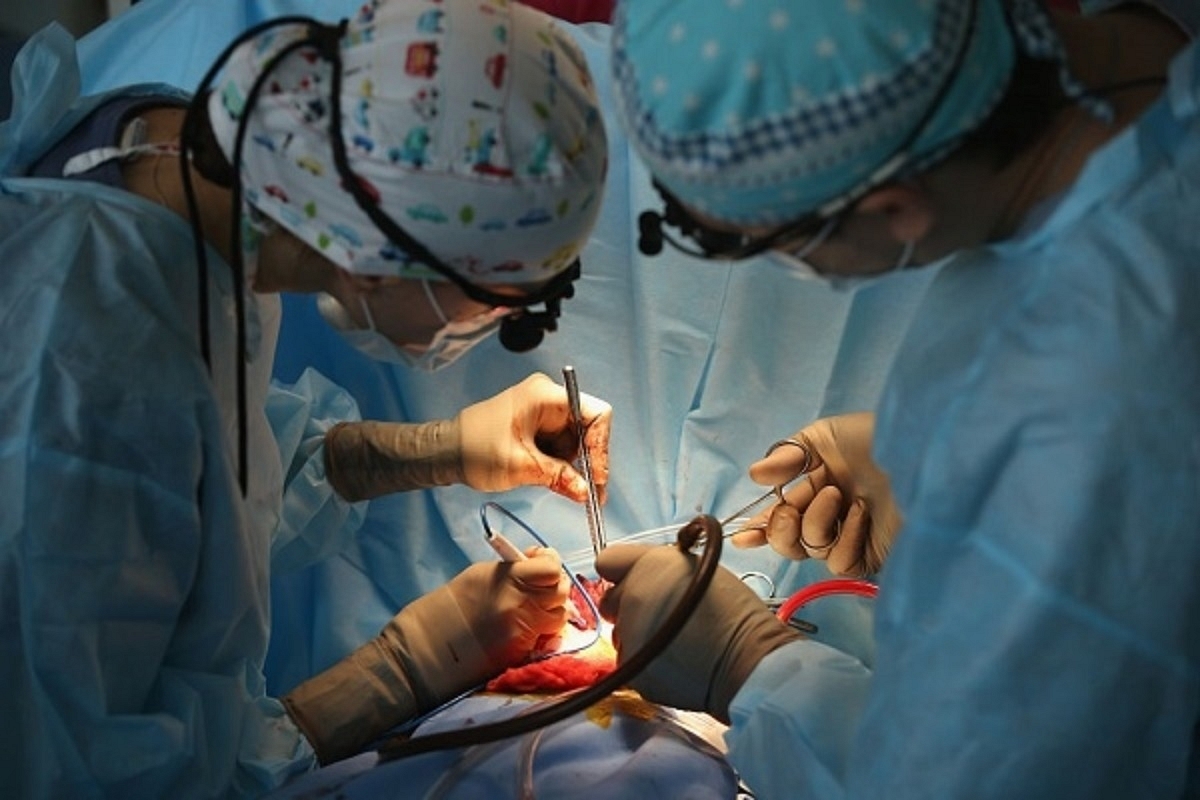Science
Indian Scientists Develop Non-Cytotoxic Nanocomposite Coatings To Prevent Post-Surgical Infections

Representative Image (Sean Gallup/Getty Images)
Indian scientists have developed a new non-cytotoxic nanocomposite coating that can prevent post-surgical infections.
This coating has been designed to inhibit biofilm formation and kill attached bacteria, which can help tackle post-operative infections that are becoming increasingly common due to antibiotic resistance in bacteria.
According to the WHO, post-operative surgical site infections affect around 11 percent of patients in low- and middle-income countries.
These post-operative surgical site infections (SSIs) are caused by the development of biofilms (groups of bacteria growing in formation that are highly resistant to antibiotics) on the incision site or in the soft tissue inside the site.
The biofilm matrix, which may come from existing infections in the patient’s body or can be transferred from the hospital environment through potential carriers like surgical equipment, wound dressing, or bandage/surgical sutures, acts as a physical shield against antibiotics given during the operation, slowing down their penetration.
Therefore, it is important to have an antibacterial coating on the surface of these materials that can act as potential sources of SSI.
Conventionally, antibacterial coatings containing biocides like nanosilver, nanocopper, triclosan, and chlorhexidine have been used, but they can be cytotoxic.
As a result, there is an increasing focus on developing alternative non-cytotoxic materials with antibacterial properties.
Researchers from ARCI, an autonomous institute of the Department of Science and Technology (DST), have developed a nanocomposite coating by combining water repellence and biocidal property (combinatorial approach), which exhibits both hydrophobic and biocidal behaviour, the Ministry of Science and Technology said on Thursday (16 February).
The developed coating not only inhibits biofilm formation by restricting bacterial and water adhesion but also kills attached bacteria.
The coating was tested on different surgical sutures and surgical instrument grade stainless steel 420 coupons and was found to be non-cytotoxic, inhibiting biofilm formation and killing attached bacteria.
"ATL was deposited on different surgical sutures made of silk, nylon, and polyglactin 910 (vicryl) in addition to surgical instrument grade stainless steel 420 coupons and tested for biofilm inhibition against American Type Culture Collection (ATCC) and clinical isolate strains of proven biofilm-forming bacteria such as Pseudomonas aeruginosa, Acinetobacter baumanii, Staphylococcus aureus and Escherichia coli at Translational Health Science Technology Institute (THSTI) and LV Prasad Eye Institute (LVPEI) respectively," the Science and Technology Ministry said in a statement.
"The ATL-coated vicryl sutures exhibited higher percentage biofilm inhibition when compared to commercially available triclosan-coated antibacterial sutures," the ministry said.
Cytotoxicity of the formulation was evaluated on coated surface, and it was found that ATL coatings are non-cytotoxic, it added.
This new coating could be used as a non-cytotoxic alternative to commercially available antibacterial coatings, especially for healthcare applications on surgical sutures/surgical instruments to prevent the rise of multidrug-resistant bacteria.
Support Swarajya's 50 Ground Reports Project & Sponsor A Story
Every general election Swarajya does a 50 ground reports project.
Aimed only at serious readers and those who appreciate the nuances of political undercurrents, the project provides a sense of India's electoral landscape. As you know, these reports are produced after considerable investment of travel, time and effort on the ground.
This time too we've kicked off the project in style and have covered over 30 constituencies already. If you're someone who appreciates such work and have enjoyed our coverage please consider sponsoring a ground report for just Rs 2999 to Rs 19,999 - it goes a long way in helping us produce more quality reportage.
You can also back this project by becoming a subscriber for as little as Rs 999 - so do click on this links and choose a plan that suits you and back us.
Click below to contribute.
Latest